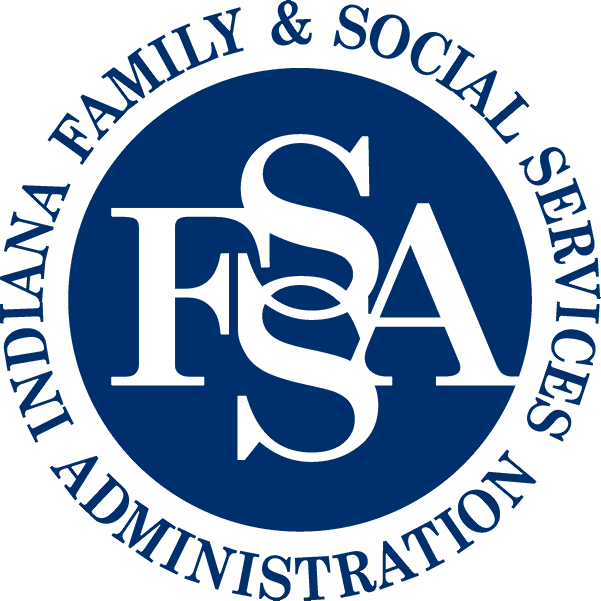Federal Program Distinctions
There are two different federal programs that support CCBHCs, the CMS CCBHC Demonstration and the Substance Abuse and Mental Health Administration CCBHC Expansion Grant (discretionary grant awards).
CMS CCBHC Demonstration – CCBHCs are funded by using a Prospective Payment System rate for qualifying services provided to Medicaid beneficiaries. States are responsible for oversight of the demonstration program which includes clinic certification, payment to the CCBHCs and development of PPS rates, and compliance with federal reporting requirements. As of June 2024, Indiana has been accepted into the next CCBHC Medicaid Demonstration and has competitively selected eight demonstration pilot sites to serve Hoosiers.
SAMHSA CCBHC Expansion Grants – CCBHC Expansion Awardees are funded for generally a grant period of two years, and funded directly by SAMHSA to their local clinic through self-attestation that the awarded clinic meets the baseline CCBHC criteria. States do not have any direct role in these grants. There have been 18 CMHC sites that have been awarded the CCBHC Expansion Grant.
Community Needs Assessment
The Community Needs Assessment is a systematic approach to identifying community needs and determining program capacity to address the needs of the population being served by the CCBHC. The overall goal of the CNA is to identify current conditions and desired services or outcomes in the community, based on data and input from key community stakeholders. CNAs are to include information such as the physical boundaries and service area, information on the prevalence of mental health and substance use conditions, economic factors and social determinants of health affecting access to health services, cultures and languages of the populations in the service area, behavioral health treatment needs, access to care, access and availability of the CCBHC services, potential barriers to care and more. CCBHCs are to collaborate on the development of the CNA with other community stakeholders such as but not limited to: individuals receiving services, hospital outpatient clinics, Veterans Affairs, school representatives, inpatient psychiatric facilities, health centers, FQHCs, local health departments and more.
The CCBHC Community Needs Assessment and the CCBHC Cost Reports must be updated and approved by the state every 3 years. This factor ensures that CCBHCs are responsive to the needs of the community, and that the PPS rates continue to cover the costs of providing CCBHC services to the community.
Care Coordination Partnerships
CCBHCs are required to develop care coordination partnerships in their service area. There are two types of partnerships that CCBHCs can develop:
- Care Coordination Agreement: A mandatory type of partnership that CCBHCs must create with a variety of community or regional services, supports, programs and providers such as Federally Qualified Health Centers, Opioid Treatment Providers, inpatient psychiatric treatment programs, medical withdrawal facilities, Community Health Centers, psychiatric residential treatment facilities, schools, child welfare agencies, criminal justice agencies and others. The Care Coordination establishes expectations and protocols to ensure adequate care coordination.
- Designated Collaboration Organization: A new partnership type designed in the CCBHC model. A DCO is an entity that is not under the direct supervision of the CCBHC but is engaged in a formal partnership with the CCBHC to deliver one or more (or elements of) the required services that a CCBHC must provide, according to the state of Indiana CCBHC Criteria. DCO partnerships are formalized through a contract, memorandum of understanding or other type of legal arrangement. DCO agreements should describe the mutual expectations of the CCBHC and DCO, establish accountability for services to be provided according to the CCBHC criteria, and the funding agreement between the entities. DCOs may provide up to 49% of the required CCBHC services, not including mobile crisis and crisis stabilization services.
DCO agreements shall include assurances that required CCBHC services provided by DCOs are delivered according to the standards set in the CCBHC certification criteria.
Services rendered through a DCO should be seamless and feel as part of the same coordinated package as with other CCBHC services to the individual or family receiving services.
DCO partnerships provide an opportunity for CCBHCs to partner with other entities to provide the full continuum of the services required by a CCBHC, and to partner with entities that can utilize established expertise and logistical capacity to provide high quality services and care.
Provider Resources
Please see the following provider resources available upon request via ccbhcquestions@fssa.in.gov:
- CCBHC Provider Designation Guidance
- CCBHC Provider FAQs (including FAQs on billing, prior authorization, data reporting)
- CCBHC Valid Encounter Code List
- CCBHC Encounter Code Definition Guidance
- CCBHC Cost Reporting Guidance
- CCBHC Billing Guidance
- Other Relevant Provider Guidance




